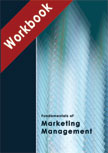P&G's Vocalpoint - Using Moms for W.O.M.
|
 |
 |
ICMR HOME | Case Studies Collection
Case Details:
Case Code : MKTG136
Case Length : 19 Pages
Period : 2001-2006
Organization : Procter & Gamble Company
Pub Date : 2006
Teaching Note : Available
Countries : USA
Industry : FMCG
To download P&G's Vocalpoint - Using Moms for W.O.M.
case study
(Case Code: MKTG136) click on the button below, and select the case from the list of
Available cases:
![]()
Price:
For delivery in electronic format: Rs. 300;
For delivery through courier (within India): Rs. 300 + Shipping & Handling Charges extra
» Marketing Case Studies
» Marketing Management Short Case Studies
» Case Studies Collection
» ICMR HOME
» Marketing Management Short Case Studies
» View Detailed Pricing Info
» How To Order This Case
» Business Case Studies
» Area Specific Case Studies
» Industry Wise Case Studies
» Company Wise Case Studies

Please note:
This case study was compiled from published sources, and is intended to be used as a basis for class discussion. It is not intended to illustrate either effective or ineffective handling of a management situation. Nor is it a primary information source.
Chat with us

Please leave your feedback

"P&G started this idea of manufacturing word-of-mouth. They recruited a quarter million teens to talk about their products. Now they are in the process of recruiting mothers to do the same thing because they have suddenly realized that word-of-mouth is a powerful thing." 1
- Jerry Wind, Professor of Marketing, The Wharton School, University of Pennsylvania, in June 2005.
"The program is a state-of-the-art method for reaching the most influential group of shoppers in America: moms. At a time when companies need to find creative ways to get their message across to consumers, it's likely to be widely studied. But Vocalpoint also raises a serious ethical issue: Should the person spreading the product message disclose her affiliation." 2
- BusinessWeek, in May 2006.
The Power Buzz Moms
|
On December 6, 2005, Procter & Gamble Company (P&G), a leading manufacturer and marketer of consumer products, announced that it would enroll influential moms to be a part of an exclusive group of women. The group was named Vocalpoint and the moms were expected to provide their opinions and feedback on P&G's latest products, the products of other external clients like WD-40 Co.3 (WD-40), Animal Planet,4 etc., and other new product concepts. The members of Vocalpoint were also encouraged to share their opinions regarding these new products with their family and friends. |
"Over the years, Procter & Gamble has offered products that help moms run their households efficiently and economically, and we've often heard back from our customers about what they liked, or perhaps didn't like, about a particular product.
At P&G, we find this consumer feedback absolutely invaluable in helping us continuously offer products that best serve the needs of our customers. By developing Vocalpoint, P&G has set up a way for other companies to gain access to these very vocal and influential moms to gain access to their thoughts and feedback as well,"5 said Amy Donges, marketing manager of Vocalpoint.
Though word-of-mouth (WOM) marketing6 is a recognized marketing tool, which has been used for a long time, analysts credit P&G with pioneering this approach on a large scale. As early as 2001, P&G had recruited hundreds of thousands of teenagers to create a buzz about new products through its division Tremor. Subsequently, Tremor Moms were also recruited and in December 2005, large scale recruitment for such influential moms was started under the new name Vocalpoint. By May 2006, P&G had enlisted 225,000 teenagers in Tremor and another 600,000 moms in Vocalpoint. |
Analysts opined that this strategy proved to be very effective as research showed an upward shift in sales of the products promoted through this network of people called "connectors". The success of this method at P&G and other smaller firms specializing in WOM has prompted many analysts to opine that WOM is fast becoming the hottest trend in marketing.
However, the use of this method by marketers has also drawn a lot of criticism. As P&G does not require its connectors to disclose their affiliations with P&G, it has been accused of deceptive marketing. Some marketing experts were also concerned about the ethical implication of using such a method as it could lead to commercialization of peoples' daily lives and their relationships, where people would treat one another as objects of manipulation, undercutting social trust.
Critics also took exception to the fact that Tremor used and targeted teenagers, who were at an impressionable age, for commercial transactions. P&G's policy of not requiring that connectors disclose their affiliation with the marketer even put it at loggerheads with Word of Mouth Marketing Association7 (WOMMA), who were pushing for such a disclosure.
P&G defended its stand, saying that it was taking the high road as it did not impose any such restrictions on its members, thus placing them in total charge of what they wanted to communicate to their peers. They also pointed out that members were not compensated in any way and the company did not influence what they wanted to say.
P&G's Vocalpoint - Using Moms for W.O.M - Next Page >>

1] "What's the Buzz about Buzz Marketing?" www.whartonsp.com, June 3, 2005.
2] "I Sold it through the Grapevine," www.businessweek.com, May 29, 2006.
3] WD-40 Co., headquartered in San Diego, California, USA is known for its widely-used penetrating oil (cleaner, lubricant and anti-corrosive solution) marketed under the trademark WD-40. In the years preceding 2006, the WD-40 company acquired several household products companies. As of 2006, it marketed its products in more than 160 countries worldwide.
4] Animal Planet, launched in 1996, is a cable and satellite television network co-owned 80% by Discovery Communications Inc., and 20% by the BBC Worldwide. The channel is dedicated to programming that highlights the relationship between humans and animals.
5] "Savvy Moms Share Maternal Instincts; Vocalpoint Offers Online Moms the Opportunity to be a Valuable Resource to their Communities," www. phx.corporate-ir.net, December 6, 2005.
6] Word-of-mouth marketing (or WOM advocacy) is a term used by marketers and advertisers to describe activities that companies undertake to generate personal recommendations as well as referrals for brand names, products and services.
7] WOMMA is the official trade association for the WOM marketing industry in the US. It was founded in the year 2004. Its mission is to promote and improve WOM marketing by protecting consumers and the industry with strong ethical guidelines, promoting WOM as an effective marketing tool, and setting standards to encourage its use.
Case Studies Links:-
Case Studies,
Short Case Studies,
Simplified Case Studies.
Other Case Studies:-
Multimedia Case Studies,
Cases in Other Languages.
Business Reports Link:-
Business Reports.
Books:-
Text Books,
Work Books,
Case Study Volumes.


